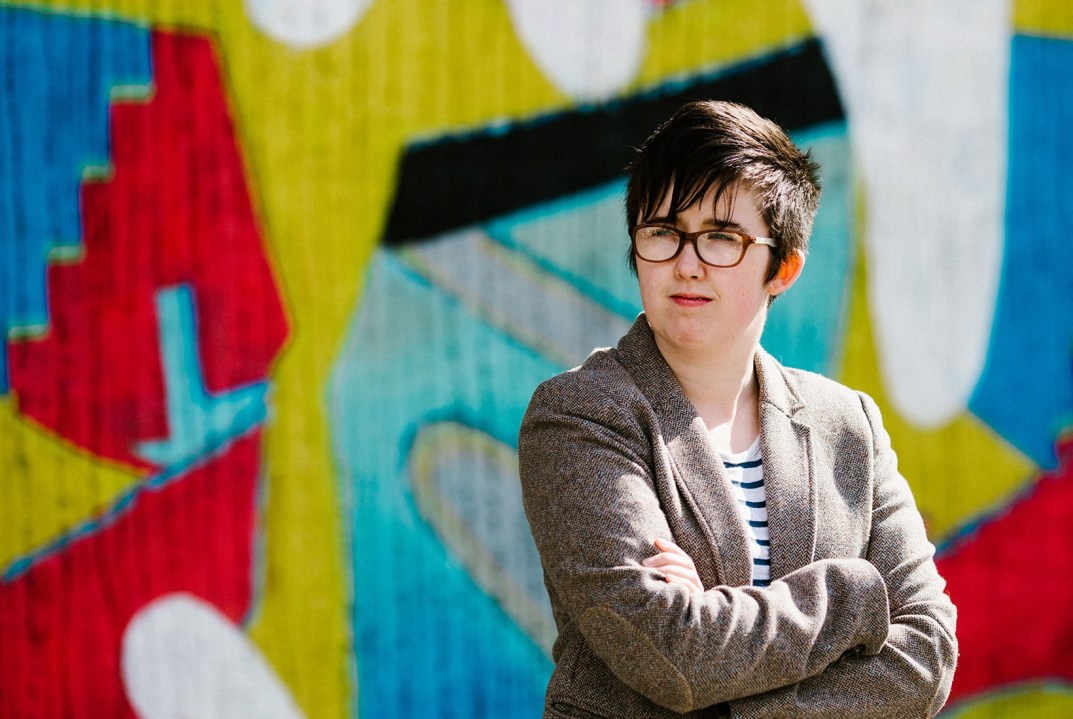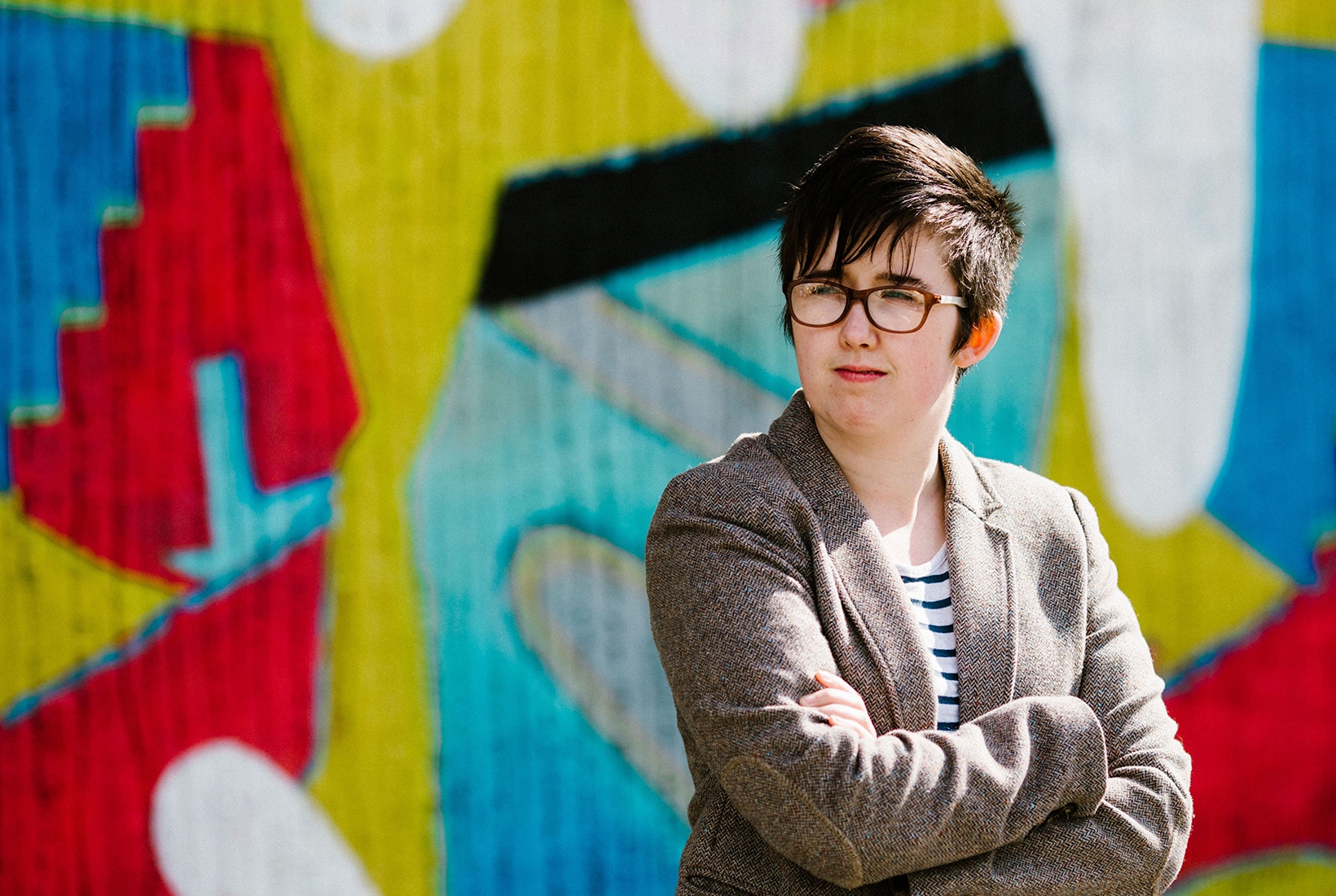In the two generations since Watergate, the image of the journalist has gone from that of plucky truth-seeker to sensationalist and partisan hack. Somewhere along the way the fresh-faced idealists of All the President’s Men gave way to the dissociative anti-hero of Nightcrawler.
Corporate-driven news values? Probably. Phone hacking? Definitely. But what grates more is the suspicion that journalism is
a clique that protects its own, disdains its audience and passes off its attitudes and preferences as the neutral norm. The perception isn’t entirely wide of the mark.
Lyra McKee was a one-woman union for the reputation of journalism. To her it was more than blue-tick-on-blue-tick gossip-shopping and SEO-chasing junk news. Journalism had a social purpose and, in that, a dignity. There was no pretended objectivity with Lyra. She was for the poor, the minorities, the refugees, the sex workers, the abused and all those left behind in a country struggling to catch up with a promised but elusive future. That country was Northern Ireland and the reason we are speaking in the past tense is that Lyra is gone. Last April, while reporting on republican rioting in the Creggan area of Derry, she was shot dead.
When the news broke that a journalist had been killed in Derry, I knew instantly that it was my friend Lyra. That was who she was. Not a voyeuristic thrill-seeker but someone who had to get the story and get it out there. She was allergic to ignorance and bridled at the negotiations that made peace possible but left so much injustice hidden. In a 2016 essay, she reflected:
The Ceasefire Babies was what they called us. Those too young to remember the worst of the terror because we were either in nappies or just out of them when the Provisional IRA ceasefire was called… We were the Good Friday Agreement generation, destined never to witness the horrors of war but to reap the spoils of peace. The spoils just never seemed to reach us.
That piece, ‘Suicide of the Ceasefire Babies’, is one of 20 featured in Lost, Found, Remembered, a collection of Lyra’s writing. It’s a slight volume, but brimming with the oversized talent and boundless potential of a woman who never saw 30 but crammed the lives of 100 journalists into her short life.
The essay for which she is best known also makes an appearance. ‘A Letter to My Fourteen-Year-Old Self’ went viral at the time of publication in 2014 and again after Lyra’s murder. The letter reflects on her struggle growing up lesbian in a society where the only thing Orange and Green could agree on was that homosexuality was an abomination. In Northern Ireland, even intolerance is consociational.
Lyra’s letter has become a touchstone text for young LGBT people, in part because of its stress on friendship and acceptance:
In two years’ time you will leave school and go to a local technical college. Don’t worry — you’re going to make friends. These will be your first real friends in semi-adulthood, the people who will answer your calls at four o’clock in the morning. In the years to come, you’ll only keep in touch with Gavyn and Jonny but you’ll remember the others fondly. When you’re 17, you’ll tell them your secret and they won’t mind. It will take courage but you will do it. Gavyn will become Christian and you will fear that he will hate you, but one afternoon, you’ll receive a text message saying: ‘This changes nothing. You’ll always be my friend.’ Accept him for what he is as he has accepted you.
‘A Letter to My Fourteen-Year-Old Self’ is an achingly personal missive but it subtly records the slow-shifting social attitudes that are forging a new, more liberal Ulster. It also captures the blunt, earthy humour of Northern Ireland. When Lyra finally works up the courage to come out, her mum hugs her and exclaims: ‘Thank God you’re not pregnant.’
Even at her most reporterly, as in ‘Why I Set Myself on Fire at Belfast City Hall’, the story of an asylum seeker who self-immolated in protest at a lack of support for refugees, Lyra’s huge, world-embracing heart comes through. Every month or so I get halfway through her mobile number before it hits me again. Sometimes I rewrite her biography in my mind and take her story into
a different future, where she is to be found solving Troubles-era cold cases and going undercover at Ash House in between marrying her beloved Sara and starting a family.
Lost, Found, Remembered can’t deliver that fantasy but it does give us more of Lyra’s journalism to look forward to. Included here is an excerpt from The Lost Boys, forthcoming from Faber. Lyra was drawn to the disappearance of a number of boys during, but not connected to, the Troubles. We had long phone conversations about the cases and Lyra’s troubling theory about what had happened. It is a story that deserves to be told.
If you have come to view journalism with contempt, if you are convinced it’s all rotten and corrupt and ephemeral, you still have to reckon with Lyra McKee. Lost, Found, Remembered contains some of the most remarkable writing about Northern Ireland and its author was one of the best of our trade.








Comments